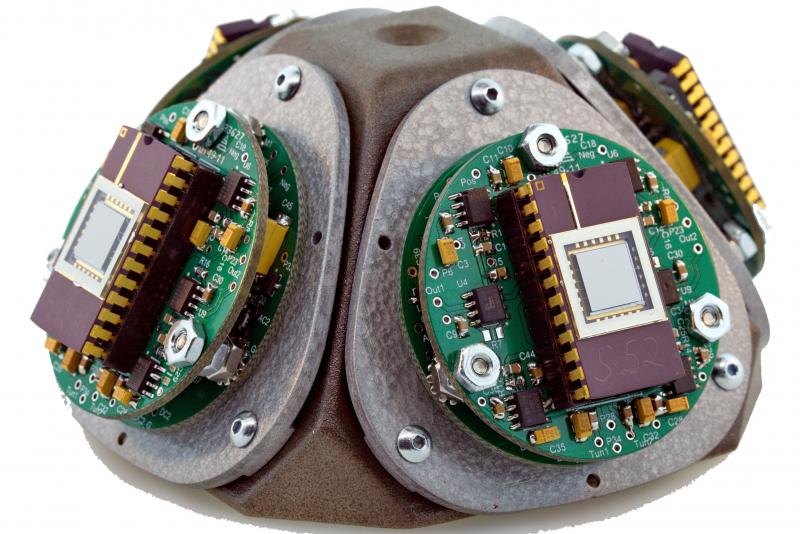Alexander Trusov Collaboration Receives $6 Million from DARPA
Collaboration developing chip that can outperform GPS
 Alexander A. Trusov, Ph.D., project scientist at the Department of Mechanical and Aerospace Engineering (MAE) in The Henry Samueli School of Engineering at UC Irvine was awarded $6 million by the Defense Advanced Research Projects Agency (DARPA) under the Primary and Secondary Calibration on Active Layer (PASCAL) program.
Alexander A. Trusov, Ph.D., project scientist at the Department of Mechanical and Aerospace Engineering (MAE) in The Henry Samueli School of Engineering at UC Irvine was awarded $6 million by the Defense Advanced Research Projects Agency (DARPA) under the Primary and Secondary Calibration on Active Layer (PASCAL) program.
The project, entitled "Self-Calibrating Inertial MEMS," is a collaboration between Dr. Trusov, Professor William C. Tang and David M. Rozelle of Northrop Grumman Guidance and Electronics Company, Inc. Inertial microelectromechanical systems (MEMS) sensors are strongly desired for many platforms and applications due to their inherently small size, low power consumption and ease of integration with electronics.
The deliverable of this project is an integrated, ultra-miniaturized inertial microsystem with in-situ self-calibration capabilities strategically implemented on-chip. The developed inertial sensors will become a critical part of an Inertial Measurement Unit (IMU), small and sufficiently low powered for adaptation in Guidance, Navigation, and Control (GN&C) units for handheld devices and various small unmanned vehicles and platforms.
This revolutionary technology may effectively eliminate the dependence on Global Positioning System (GPS) or any other external signals and enable uncompromised navigation and guidance capabilities for these applications. The reason this can be better than GPS is because inertial sensing does not require any external signals. Because of this fundamental advantage of inertial navigation it cannot be jammed and works everywhere, while GPS can be easily jammed and is not available in a lot of situations (buildings, forests, caves, underwater, etc.).
Trusov will lead the three year effort pursuing novel self-calibration methods for MEMS gyroscopes and accelerometers. The technical approach to satisfying the challenging DARPA requirements is based on several key MEMS sensors innovations developed at the UC Irvine MAE MicroSystems Laboratory and macro-scale inertial systems expertise developed by the Northrop Grumman team.
"I am very excited about this challenging program and am looking forward to work on advancing the state of the art in inertial MEMS technology and expand the inertial MEMS research program at the UC Irvine MicroSystems Lab," said Trusov.
The DARPA PASCAL program seeks to address challenges associated with the long-term bias and scale-factor drift of chip-scale components for positioning, navigation and timing tasks, and is specifically interested in development of new paradigms for in-situ calibration of inertial sensors and clocks.
